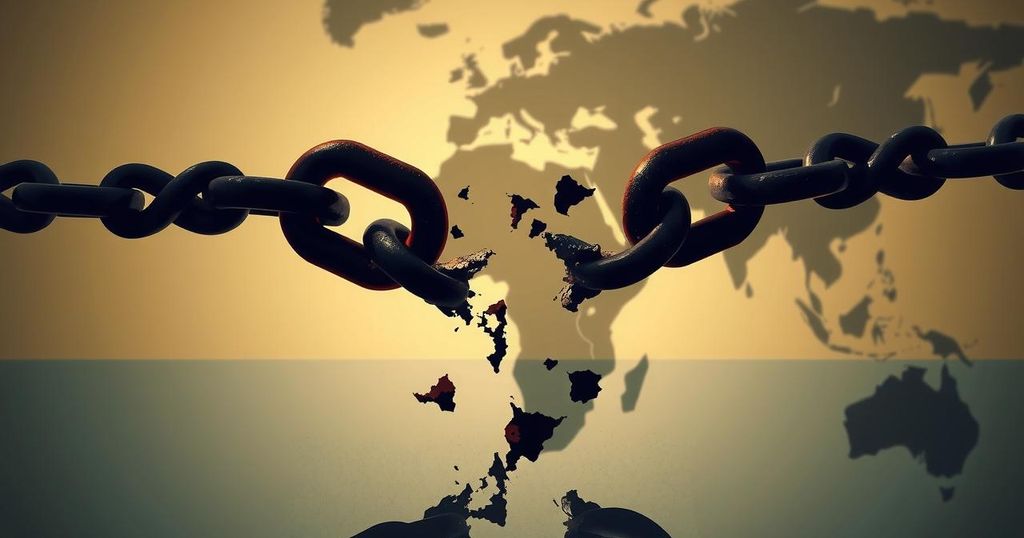India Rejects Trump’s Mediation Offer for China Border Disputes
President Trump’s offer to mediate the India-China border issue was declined by India, which favors a bilateral approach. Trump expressed concern over the violent skirmishes during a press conference with PM Modi. The discussions included potential defense deals and trade agreements, with future negotiations set to resume aiming for completion by fall 2025.
In Washington, India has firmly stated its intention to pursue a bilateral resolution to its border disputes with China, despite President Donald Trump’s offer for mediation. Trump proposed his assistance following discussions with Prime Minister Narendra Modi at the White House, highlighting the severity of the ongoing border skirmishes between India and China.
During their joint news conference, President Trump remarked, “I look at India, I do see the skirmishes on the border, which are quite vicious, and I guess they continue to go on. If I could be of help, I’d love to help because that should be stopped. That’s been going on for a long time and it’s quite violent.”
However, shortly after the President’s offer, the Indian government declined, reiterating that it has consistently favored a bilateral approach to such issues. Foreign Secretary Vikram Misri emphasized, “Whatever issues we have with any of our neighbours, we have always adopted a bilateral approach to dealing with these issues.”
President Trump has previously proposed mediation between India and Pakistan, as well as India and China, but these suggestions have been repeatedly rejected by India. The U.S. leader aims to present himself as a global peacemaker, particularly concerning ongoing tensions such as those between Russia and Ukraine.
The Foreign Secretary also addressed Trump’s offer to supply India with F-35 stealth fighter jets, indicating that discussions on this matter have yet to commence formally. Furthermore, Misri reviewed the topic of tariffs, which President Trump recently updated as part of his reciprocal trade strategy, mentioning that trade discussions were integral to their conversations during the bilateral talks.
Misri noted, “What’s more remarkable is the fact that we have a way forward on this issue in terms of the undertaking to discuss or start discussions on a bilateral trading agreement…” This sentiment refers to previous trade negotiations that had taken place during the Trump Administration, which were unable to culminate in an agreement during PM Modi’s visit in 2020.
Looking ahead, discussions for a bilateral trade agreement are set to resume, with an expected timeline for completion by fall 2025. Misri stated, “So we are looking at the next seven to eight months to get this done… both teams have got the instructions or the indications from the highest levels to start engaging on this.”
In summary, India’s rejection of President Trump’s mediation offer for its border disputes with China underscores its commitment to a bilateral approach. The discussions between Modi and Trump encompassed various issues, including defense and trade engagements, revealing a willingness to revisit established but uncompleted negotiations. Future efforts are expected to focus on enhancing bilateral trade agreements with a set timeline for resolution.
Original Source: www.ndtv.com








Post Comment